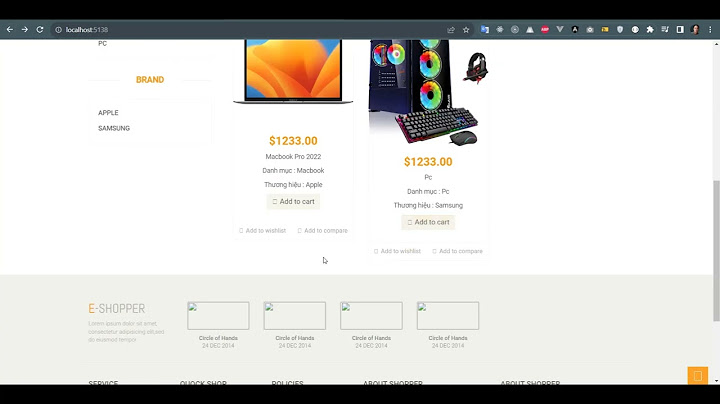State law requires that every City and county in California adopt a Housing Element as part of its General Plan. The purpose of the Housing Element is to ensure that local governments adequately plan to meet the housing needs of all people within the community - regardless of their income. Show A community’s Housing Element establishes programs, policies, and land use strategies to meet its Regional Housing Needs Allocation (RHNA). Strategies may include ways to reduce barriers to housing development, minimize housing development costs, facilitate development of balanced communities, reduce greenhouse gas emissions, and improve neighborhoods - especially those with racial concentrations and high rates of poverty. A new State law (SB 686 (2018)) also requires localities to plan through their Housing Elements to affirmatively further fair housing opportunities for residents in certain ‘protected classes,’ or types of people protected under law. Protected classes include race, color, national origin, citizenship status, religion, sex (including pregnancy status), gender identity, sexual orientation, marital status, disability, age (40 and older), status as a domestic violence survivor, and other categories. In addition, the State requires communities to report annually on the resources available to meet housing needs from former redevelopment agencies. Planning San José's Future: Housing Element 2023-2031We are in the process of drafting San José's Housing Element for the next 8.8-year period, from 2023 to 2031. Visit our Housing Element 2023-2031 website to learn more. We are also preparing an Assessment of Fair Housing (AFH) as part of the Housing Element Update. City of San José Adopted Housing Element 2014-2023The California Department of Housing and Community Development (HCD) certified the City's Housing Element for the 2014-23 Planning Period on April 30, 2015
Annual Progress Reports & Housing Successor ReportsState law requires cities and counties to prepare an annual progress report on the implementation of their Housing Element and to submit it to HCD each spring. The annual report reviews progress on housing production and housing strategies. In addition, the State also requires that redevelopment housing successor agencies, such as the City of San José’s Housing Department (which is the housing successor for the former San José Redevelopment Agency), report annually on certain funding and assets made available for affordable housing through the redevelopment agencies. For the 2014-2023 Housing Element period, the City’s annual progress reports on the Housing Element, combined with the City’s annual Housing Successor Reports to HCD, are listed below:
City of San José Adopted Housing Element 2007-2014
Reports to HCD prior to redevelopment agencies' dissolution on San José's use of redevelopment funds for affordable housing are listed below:
Additional information on the Housing Element can be found on the Department of Planning, Building and Code Enforcement website. GUAYNABO, Puerto Rico – FEMA’s Puerto Rico Joint Recovery Office will broadcast its first radio program “Dando Palique” on Mix 107.7 FM, beginning Saturday, May 25 and will focus on the island’s recovery efforts, emergency management and preparedness. The program, airing Saturdays at 9 a.m., aims to educate the public on the importance of effective emergency management while highlighting the recovery process on the island – where we are now and where we are going. “This is a unique opportunity to discuss progress in Puerto Rico’s recovery operations and the plans for the future, and what better way to achieve this than by making information more accessible to the residents of our island”, said Director for Recovery Operations in Puerto Rico, Jonathan Hoyes. The first guest in the show is the Commonwealth’s Director of the Central Office for Recovery, Reconstruction and Resilience in Puerto Rico, Omar Marrero, who leads the recovery efforts after hurricanes Irma and Maria struck the island. Other guests include representatives from federal, state and local government agencies, the private sector and nonprofit organizations. Other topics to hit the island’s radio waves include FEMA's mission and scope in the disaster and hurricane season preparedness tips. Updates on federal assistance to help rebuild after the storm and the island’s electrical infrastructure will also be discussed on the 30-minute weekly show. Marynet Sanchez, Wilberto Gonzalez, Jonuel Negron and Barbara Muriente, a team of local hires that has been a part of Puerto Rico's recovery efforts for over a year, will produce and host the show. The team will also air brief informational segments and success stories emphasizing resiliency in Puerto Rico. The recovery mission in Puerto Rico is extraordinary, and this innovative approach to communicating with survivors is just another example of FEMA’s equally extraordinary long-term commitment to ensuring a more capable, ready and resilient island. For more information on Puerto Rico’s recovery from Hurricane Maria, visit fema.gov/disaster/4339. ### Disaster recovery assistance is available without regard to race, color, religion, nationality, sex, age, disability, English proficiency or economic status. If you or someone you know has been discriminated against, call FEMA toll-free at 800-621-FEMA (3362) 711/VRS - Video Relay Service). Multilingual operators are available. (Press 2 for Spanish). TTY call 800-462-7585. |




















